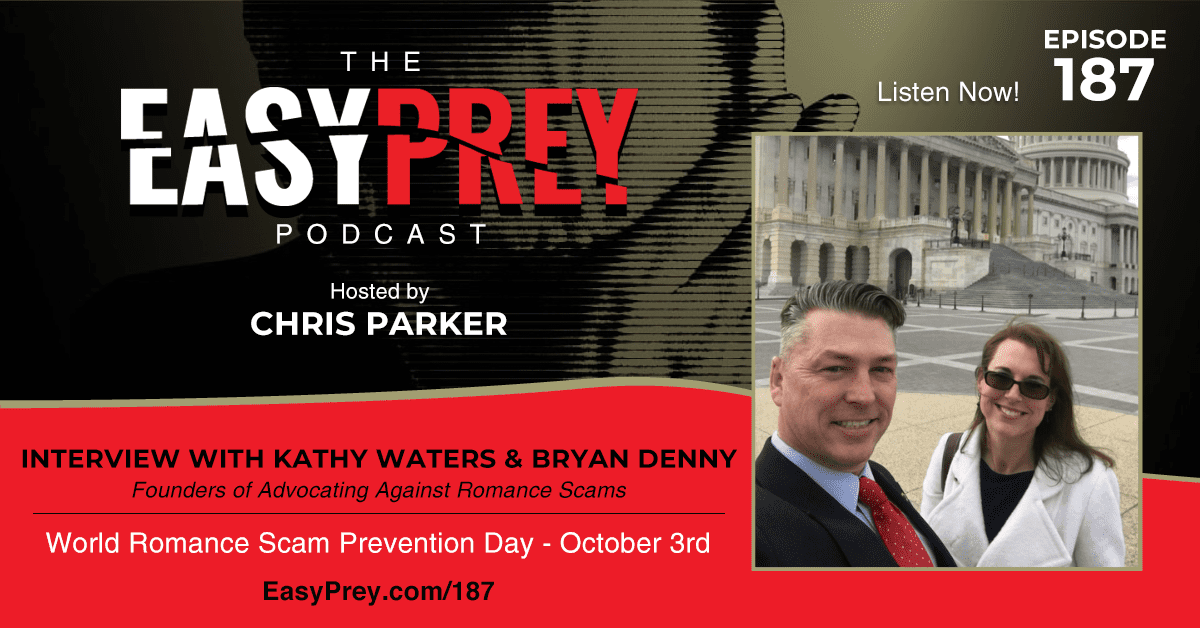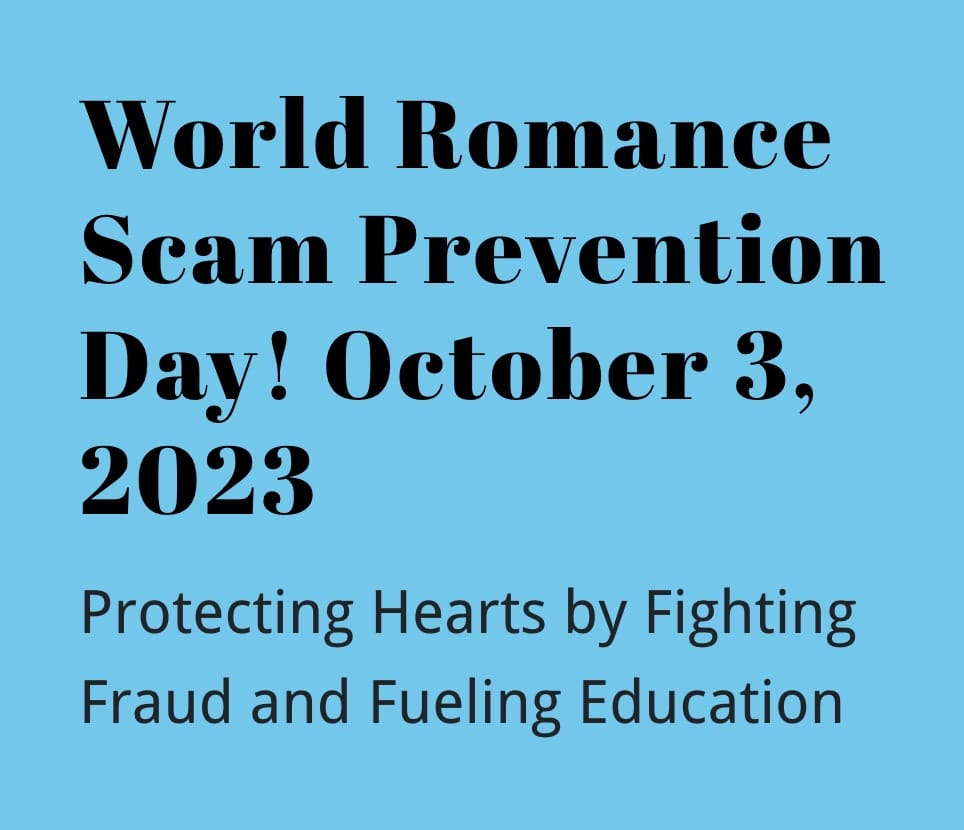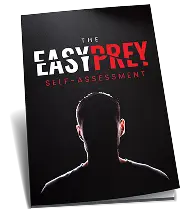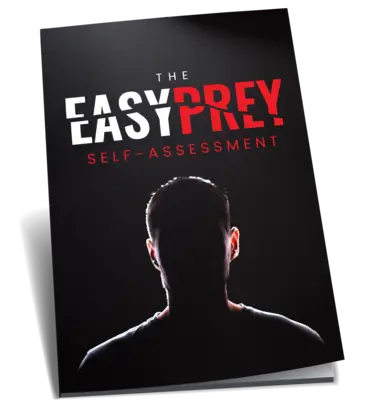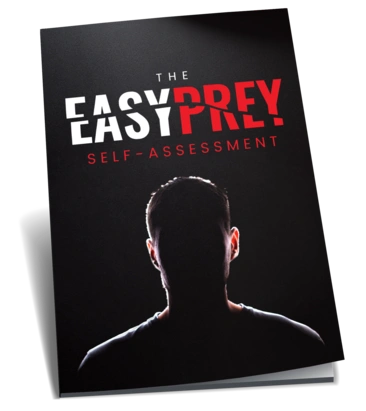Romance scammers are patient and willing to take their time to win over their target. In today’s episode, we’ll talk about how you can help out and make a difference to reduce the impact of romance scams.
Today’s guests are Kathy Waters and Bryan Denny. Kathy Waters is an expert advocate and an educator on the subject of online romance scams. Kathy is co-founder, along with retired Colonel Bryan Denny, of the non-profit organization Advocating Against Romance Scammers. Both have been working for safer platforms since 2016 with the same goals in mind: justice for victims and educating all online of the cybercrime known to tear people down emotionally, psychologically, and financially. They are now the organizers of World Romance Scam Prevention Day on October 3rd.
“If you want to believe this is real, you will believe it is real. No matter all of the signs that you are being duped.” - Bryan Denny Share on XShow Notes:
- [1:10] – Kathy and Bryan share their background and why they are passionate about advocating for victims of romance scams.
- [2:47] – Bryan was a victim of a romance scam, but not in the way you might think. Someone had been using his photo and posing as him.
- [4:10] – Unfortunately, Bryan’s name and photo are still being used by scammers.
- [6:36] – When someone’s profile image is taken, it is used over and over again. Getting one taken down is not going to end it.
- [8:22] – There are organized crime groups that use Bryan’s photos, but they believe that there are independent scammers using it as well.
- [9:55] – World Romance Scam Prevention Day is October 3rd, and this is the first year it is official.
- [12:59] – One of the myths about romance scams is the belief that people don’t actually fall for these things.
- [14:47] – Another myth is that this only targets older people, but even juveniles are being targeted specifically for sextortion.
- [18:01] – Romance scammers typically start to build a relationship slowly. They move the conversation outside a lot of social media apps.
- [19:49] – People who want to believe it's real, will believe that it's real.
- [20:44] – Bryan shares some common stories that scammers use in romance scams to get money from a victim.
- [22:03] – Although some take a lot of time to ask for money, others will test the waters early and ask for small amounts or even content they use to blackmail.
- [24:19] – Kathy suggests that mental health professionals come forward to provide education and support as well.
- [26:40] – Never turn your back on a friend or family member who has fallen victim to a romance scam.
- [27:24] – Learn what you can do to help support World Romance Scam Prevention Day.
Thanks for joining us on Easy Prey. Be sure to subscribe to our podcast on iTunes and leave a nice review.
Links and Resources:
- Podcast Web Page
- Facebook Page
- whatismyipaddress.com
- Easy Prey on Instagram
- Easy Prey on Twitter
- Easy Prey on LinkedIn
- Easy Prey on YouTube
- Easy Prey on Pinterest
- AdvocatingForU.com
- World Romance Scam Prevention Day Home Page
Transcript:
Kathy and Bryan, thank you so much for coming on the Easy Prey Podcast again.
Kathy: Thank you, Chris, for having us.
Bryan: Thank you for having us.
We’ll start with Kathy. Can you give a little background for myself and the audience about who you are and what you do?
Kathy: My name is Kathy Waters, and I am an advocate against the romance scams. I also have a job where I work for a well-known hospital. I am an operations coordinator—that’s during the day. By night, I’m […] during the day, too. I am an advocate, like I said. I am married, I have two kids, I love my job, I love advocating for people and being a voice for many of the victims.
Awesome. And Bryan, your background?
Bryan: I’m a retired US Army soldier, 26 years. I am married with four kids. Currently, I’m a defense consultant. When I’m not doing that, I work with a couple of different groups. First and foremost is the advocating against romance scams.
I am trying to find justice for people who have been used and abused to the scam process, taken advantage of, and bring to light and educate folks that this is a real thing, a real crime that’s being perpetrated on our society and across the globe by organized criminals. That’s what I do.
And Bryan, can you refresh the listeners? We had you on about, I think, a year ago, your story and how you got pulled into this world?
Bryan: I got into romance scams the old-fashioned way as a victim. I was […] up my social media network, particularly LinkedIn, as I was getting ready to leave the army.
Someone reached out, and I thought it was probably a reference to a job opportunity. It was a lady to tell me that she thought she’d been in a relationship with me for several weeks, and that she had sent some money to me so I could fly home to see her while I was on R&R leave out of Syria.
I explained to her that that wasn’t me. We had never spoken before. She proceeded to send me lots of pictures that had been pulled off the Internet, a couple of plane tickets that had been doctored to look like my name, and I was coming to visit her.
She suggested I go on Facebook and search my name in the search bar there. I did and there were double digits of Bryan Dennys that popped up with exact same spelling, exact same photos, all fake profiles or duplicates meant to scam and take advantage of people. That’s how I was introduced to the world of romance scams.
And my understanding is it’s still happening with your name and likeness today.
Bryan: Sure. You could go into Facebook and—these are the easy ones to find—type in my name and they’ll pop up. The harder ones are the ones that don’t use my full name and just the images. You could do some searches to sort that out, and we rely upon people to bring those to our attention.
It’s absolutely still going on today. It’s going to continue to go on, as long as it’s profitable for people to take advantage of others using the image. It’s going to continue to make money for somebody.
And Kathy, what was your introduction to romance scams?
Kathy: My mother’s friend was being scammed by somebody. One of those stories that was too good to be true. If you hear about it, you never think you’re going to be affected by it.
Fortunately, I was not a victim of it, but seeing my mother’s friend go through this scam kind of does make you a victim. I recognized that the name on Bryan’s uniform was not the same name that she gave me. I looked more into it. I ended up finding Bryan just googling “army man Denny,” which was the name on the uniform.
Bryan got back to me and told me that he had been dealing with this for the past six months, and neither one of us knew the extent of it, how big it was, if one scammer had his pictures or if it was a multitude of people. Unfortunately, it was a multitude of people, and like I said, it still goes on to this day.
I am finding accounts often and I report them as Bryan’s friend. Unfortunately, they’re still remaining. We’re not having a lot of luck on that end, but it’s going on. We haven’t seen any progress on that end, unfortunately.
Did you just get the Whac-A-Mole progress of once in a while you’ll get an account killed off and then it just pops back up again?
Kathy: Absolutely. There have been some that have come down. I don’t know what the difference is of why some come down and some don’t. But these guys pop them right back up with either Bryan’s pictures or somebody else’s picture that’s being used.
Bryan: It’s not like you get rid of one and there’s a victory; there’s nothing out there. Literally, there are dozens and dozens and dozens. If you look across the other social media platforms, hundreds of fake profiles with my images or folks like me, men and women. You get one down, it’s almost, so what?
It’s the Whac-A-Mole game with all the moles up.
Bryan: Exactly. That’s a great analogy. We were really working, and when Facebook was the social media giant that we really tried to approach and make a difference there, at best we would have maybe a 33% success rate in reporting profiles and having something done with them. OK, those are gone. There are still three times that many out there that are still active and that you didn’t make a dent in. That’s just reality.
You get one down, it’s almost like, “OK, that was great. So what? Did it really do anything?” It’s hard to really gauge what success you’re having when you go back and see the same fake profiles are still up in existence, week after week, month after month, and sometimes years.
Have you guys been able to determine whether this is a diverse group of unrelated perpetrators, or do you think one criminal enterprise doing all of them?
Kathy: I think it’s an array of them. There are different organized crime groups that are out there that definitely use Bryan’s pictures. But I also think there are individuals, too, that are out there trying to make a buck on his pictures that don’t necessarily work under the organized crime groups.
We did just notice one I sent to Bryan with crypto information. Crypto’s being used a little bit within Ghana, Nigeria, but it’s primarily used within Asia. I don’t know. Bryan’s picture sounds like might be going over there now, and that’s just going to cause an even more world of hurt.
This all leads to your advocacy group and the launch of World Romance Scam Prevention Day. Is this your first year or have you been doing this multiple years?
Kathy: It’s our first year, actually. We had the thought about it about the end of last year; started looking into it. It’s an application we have to put in. You have to be approved, because they feel that your day is worth it to help people, then they’ll OK it. And they did.
We started just getting the word out with a lot of different connections that we’ve made over almost seven years now. We’ve had a great response. We’ve got sponsorships from AARP, Match Group, Electronic Caregiver. It’s been great. And then plus 30-40 other different organizations, and anti-scam groups that are supporting the day, too.
That’s awesome. And what date is it?
Kathy: It’s October 3rd.
Awesome. And forever memorialized on October 3rd, right?
Kathy: Yes.
It’s not like the first Monday of the month or something like that. It’s specifically October 3rd. That’s awesome. Do you know what the current expected thought of losses from romance scams are?
Kathy: The only up-to-date number that I know with is through the IC3. They were saying that for romance scams alone, it is over $700 million out of the United States. They haven’t put pig butchering in with the romance scams, which is a different type of scam that’s investment and romance scams, but if you total all of that together, it’s over $3 billion out of the United States.
This number and the name of it—pig butchering—is getting a lot of attention and turning a lot of heads. I think that’s why this day coming up is going to be as successful as it is. People are knowing that more needs to be done, more education, awareness.
The pig butchering scams are more, like I said, investment scams, so big money, huge money that’s going out instead of a couple of thousand. We’re talking into hundreds of thousands, close to millions.
I’ve definitely gotten WhatsApp messages, text messages, Facebook, LinkedIn, or probably less Facebook, more LinkedIn connections that really look like they’re all the fingerprints of pig butchering for some reason. I can never get the scams to go far enough where they give me information personally, but usually there are some fingerprints on it that look surprisingly like pig butchering.
Kathy: Oh, absolutely. A lot of them are through LinkedIn because that’s where they’re finding the money. The people, the successful, those in the business community, I guess you could say, working for big corporations and stuff. It’s a great place for them to hunt down their next victims.
I get suspicious when the initial contact is, “Hi. I’d like to be your friend.” Like, hmm.
Kathy: Yeah. No.
Bryan: That’s for good reasons.
I’m used to the ones of, “Hey, I want to pitch you a business idea.” “Hey, I could help you generate leads.” Those are normal. But when they are, “I want to be your friend. You look like an interesting person.” Like, “Yeah. Trust me. I’m not that interesting.”
We’ll flip the script here. Normally, we talk about what romance scams are, but let’s talk about some of the myths, the misconceptions, about romance scams.
Kathy: Bryan?
Bryan: I was perfectly happy to let you, since I thought you did a pretty good TikTok, but OK, I’ll go. One, I think people believe that, “Who could fall for this kind of thing?” They really downplay the victim and say, “It’s an educational thing,” or something like this. I have found that that’s just completely untrue, and it’s almost like blaming the victim.
I’ve seen men and women—in my case, predominantly women—from all walks of life and all educational backgrounds that get taken in by this thing. I don’t believe that your job, social standing, your status, or the highest degree held really relates to romance scams.
I think the underlying thing that I believe ties all the victims together is just being in an emotionally vulnerable part of their life. They’ve lost a relative, typically a husband, somebody they were close to, and they want to talk.
I think the underlying thing that I believe ties all the victims together is just being in an emotionally vulnerable part of their life. They’ve lost a relative, typically a husband, somebody they were close to, and they want to… Share on XIt doesn’t have to be along those lines. It could be just somebody reaching out to have a conversation, have a connection, or emotionally vulnerable. That’s the one thread that I see that ties most of the victims together. It’s nothing else. Economic status or education level, I don’t see that at all. To think that is really the wrong way to look at it.
Kathy: I’m also seeing a difference in aging. They say it only happens to our elderly community. That’s simply not the case at all. In fact, these scammers are going after some of the younger, even juveniles or the young—19, 20, 21. They’re going after them for photos, blackmailing them for those. A lot of sextortion going on between that. They build a relationship, not necessarily a romance. Sometimes there is, but it’s still a relationship scam. These kids are sending promiscuous photos and then they’re blackmailed.
They say it only happens to our elderly community. That’s simply not the case at all. In fact, these scammers are going after some of the younger, even juveniles or the young—19, 20, 21. -Kathy Waters Share on XI’ve read a few different reports now of teens that have committed suicide over it because they just can’t stand the thought of any photos being out there of them, their friends. It’s just such a big, important social time in their life, and having to deal with that, having to tell somebody. The embarrassment follows any age, and so does manipulation and blackmails. Those are two huge misconceptions that people have.
And the primary connection points—social media, dating sites—under what platforms or what circumstances are these connections initially started?
Kathy: Every platform, from what I’ve seen.
Bryan: Every platform can be a conduit. In some platforms, let’s say Facebook, where you’re communicating potentially in the open, a scammer will try to move you into their own private email account to take that conversation offline. Other people can’t see it and won’t be able to advise the person being scammed that this is obviously a scammer you’re talking to. Any site can be used to set the hook, but really, it’s very quickly moved behind the scenes in most cases.
I have my own opinions on this. Do you think that’s done to keep those public accounts active and have them not shut down? If all my scamming is going on on a different platform and your social media platform looks at the contact, that we don’t see anything odd happening here?
Bryan: Yeah, there are probably several reasons. The one I suggested is to keep that conversation out of visibility from the rest of the people that may be looking at that. And also the people from social media who may be looking at that account going, “Hey, is there something fishy wrong here?” Well, they don’t really see any of the texts or conversations because they’ve been moved and hidden. I think that absolutely could play into it.
We’re assuming, of course, that the social media giants actually have somebody that when you report an account, they go and look at that kind of thing. I personally don’t believe that they do. I think it’s really algorithms. If they did have somebody actually go in and look at the verbiage and see what was being said, it may pique some interest. But I don’t think that they do.
Kathy: I think they meet their person, they move the conversation, and then they park their account. So it’s not reported. Once they start building a relationship or the scam is figured out, then they can boost up that account again and move on to their next victim.
The longer the accounts or the older the accounts are, the more reliable they look. Social media platforms don’t recognize them as a fake account. They look pretty legit to them. -Kathy Waters Share on XThe longer the accounts or the older the accounts are, the more reliable they look. Social media platforms don’t recognize them as a fake account. They look pretty legit to them. As long as they can hide them and move the conversation over to WhatsApp, Hangouts, all those encrypted sites, then they’re one up on us, unfortunately.
The freshness of the account is definitely one of the things that I look at when someone’s saying, “Hey, do you think this is a legitimate cryptocurrency exchange?” I look at the domain age and it’s been around for three days. Probably not. They’re probably not one of the top 50 exchanges in the world if they’ve only been around a couple of days. So the freshness of the account is always something that would, in my mind, register as a red flag.
Kathy: Absolutely.
Bryan: You just said something there in terms of people just need to know. Go look at the domain name. You know to do that. A lot of people wouldn’t know to do that. And there are always indicators. But if you want to believe this is real, you’ll believe it’s real despite all the things being pointed out that would highlight that you’re being duped and this is fake. People that want to believe this is real will believe it’s real.
And it’s not like the first conversation is, “Hey, ma’am. I’m Bob. Can you wire me $50,000?” That’s not the first part of the conversation. There are a lot of grooming techniques that are used over the course of a long period of time.
Bryan: Yes, but also maybe no. I think Kathy and I, one of the things we’ve been surprised about is how fast they will go into building a romantic relationship or the best you can do online without meeting someone in person. And then very quickly, “Hey, I need money for this, that, and the other.” It can be as innocent.
I think I mentioned this last time, something that I heard over and over again when we first started this. That, “I’m a widower. I’m serving in the military overseas, and I have tons of money. Pick a country and I can access that.”
“My son’s back in the States in a boarding school. We have a couple of conversations and I really feel a bond.” I start throwing the flowery words at you, and next thing, “My son’s injured in a horse-riding accident at boarding school. I can’t help him because I’m overseas, but he needs money for medicine, and it could be $500.” But if you test the waters with that $500, that gets the ball rolling.
Kathy could attest; it does not take long to go from, “Hey, we just met,” to, “Could you help me take care of my son?”
Kathy: I have noticed with the pig butcherings, because it’s such a big money going through the investments and stuff, that the grooming does take a little bit longer. They have a more detailed story with their investments and how much they’ve made. They have fake websites to show them, fake bank accounts.
I think that does take a little bit longer than that, but the ones that the romance scams that we’re primarily used to dealing with—the ones that are out of Ghana, Nigeria, Turkey, those things—sometimes right off the bat they’ll ask you for a $50 gift card or something like that.
Like Bryan said, to test the waters is exactly what it is. “What can this person do for me? If they can’t afford any money, will they send me a picture? Will they give me their bank account information?” Because they can maybe move some money through being a money mule, money launderer. People don’t realize that they’re being used for that as well.
Bryan: It doesn’t have to be about money. “Maybe I could get a picture and blackmail them. If they won’t give me money to take care of my kid or put that down payment on a house together, maybe I can get them to give me some pictures so that I can blackmail them.”
Whatever they can get.
Bryan: Yeah, it’s whatever.
In talking to some other guests, I’ve heard of when these scammers are working with multiple targets, when they’re saying, “Can you send me $500?,” it’s not necessarily going to them. It’s going to another victim to show proof of repayment of $500 that they sent to somebody else. It’s like, “Well, I gave him money and he gave it back before, so he’s proved that he’s trustworthy, right?”
Kathy: Absolutely. But little do they know that when they’re going to ask for the money back, and when they’re doing that, they’re moving the money for him. Money laundering begins and people just don’t know that.
It’s crazy. What are some of the things that we can do with respect to combating the stigma and shame? Because I think that the more people talk about what’s going on, it is going to, “Oh, yep, I’ve seen that. Oh, that happened to me.” The more people that are willing to talk about it, I think, makes it harder for the criminals to do this thing. What can we do to combat the stigma and shame of this?
Kathy: I think the very best thing you can do is provide the education. I really think that more people who belong within the mental health community would be […] to come forward and provide education and information, because a lot of people just think that victims hand over the money, and that’s simply not the case at all. It’s emotional and psychological abuse and manipulation.
A lot of people just think that victims hand over the money, and that’s simply not the case at all. It’s emotional and psychological abuse and manipulation. -Kathy Waters Share on XLike Bryan said earlier about these people are usually very vulnerable at a vulnerable part of time. If they weren’t in their life and if they weren’t in that spot two weeks prior, maybe even a day prior, they would see a situation differently.
I think it’s very important that people understand the severity of the blackmailing, the mental hijacking, we’ll call it, that goes on within the scam. If people understand that and see that, I think a lot of the stigmas would go away because of the scams, and you would actually find some compassion out of the majority of people instead of the minority of people.
It sounds like one of the other things that we can do is when we know we have friends or relatives that are going through an emotional time in their life, to make sure that we’re involved and we’re there for them. “Hey, if you need anything, if you ever need to bounce anything off of me, I’m open. I’m available.” And making sure that they have some emotional connection during that time.
Bryan: And by all means, having that conversation with your loved one, your grandmother, mother, aunt, sister, and making sure that they know romance scams are a real thing. This is how they work and who they target. At an individual, very personal level talking about that, and letting them know to be on guard, to be aware of who they’re talking to online.
It seems to make sense to us after there’s been a natural disaster, that we know that people showing up at our front door claiming to be contractors, we should do our due diligence and be skeptical about them when it comes to relationships. I think we are often, “Well, I don’t want to butt in. I don’t want to get involved. I don’t want to cross a line or step on someone’s toes.”
Kathy: Unfortunately, people wait to say something because they do feel like that, or they think, “Well, maybe there is something going on that’s right here.” By the time that they approach their loved one, the manipulation is so deep that then they don’t believe them.
I do want to say, we have a blog on our website about how family members or friends can deal with victims, the right things to say, to do, and just to never turn your back on them. As much as you’ve told them, till you’re blue in the face that this is a scammer. Look at all of the red flags.
You can step back. It’s OK to step back, but just don’t close your door on them because they’re going to need somebody once that scam is revealed. You don’t want them to feel alone. That’s the last thing you want them to feel is alone.
With respect to the World Romance Scam Prevention Day, what could people do to get involved there?
Kathy: On the site, we do have community involvement. You can take anything you want off the website and share it. We have logos that you can share. You can put on your own profiles that you’re supporting the day. The more education and awareness, the better out there.
There’s a webinar that’s going to be on October 3rd, and we’re going to have a therapist, a pig-butchering victim. We’re going to have somebody come from the Match Group and another person from the FBI that’s going to be talking about why it’s important to report and the reporting process.
A lot of people get discouraged because they don’t hear back from the FBI within a certain amount of time. It’s pretty crucial for these victims to know that it can be a year or two before they’re approached about maybe a claim that they had put in.
We tried to focus on categories that maybe aren’t talked about as much, like the red flags and the tips. We hear a lot about that, but we’re not hearing what’s going on behind the scenes, law enforcement, big tech companies, that kind of thing, and the therapy that’s so desperately needed after these scams.
Our therapist, Kathy Wilson, that’s going to be on, has a support group primarily for romance scam victims, which is very rare. She’s going to come and she’s going to talk about the manipulation, the effects, and where you can get the help.
Awesome. Where can people find out if they want to participate? I know this is coming up next week. Where can they go to get more information about it?
Kathy: It’s at protectingheartsday.com. Everything is there. It’s actually October 3rd, so a little over a month away. I can’t believe how fast it’s coming up. We’re working our tails off, that’s for sure, to get things out and make people aware of the day, and hopefully as many people can attend the webinar.
If they want to find more about advocating against romance scams, where can they go for that?
Kathy: They would go to advocatingforu.com. It’s just the letter “u” at the end, not y-o-u.
With the exception of Bryan, because he doesn’t want to connect with anybody on social media, Kathy, if people want to connect with you, tell you their story, and reach out to you personally, how can they get a hold of you?
Kathy: You can get a hold of me through either website. We are on Facebook. We’re on LinkedIn. We’re on Instagram. We’re very, very easy to find and get a hold of. I will get back to you if you write me back, or if you email me is probably the best.
Awesome. And any closing thoughts before we wrap up today?
Bryan: I don’t know if you mentioned when Kathy spelled out our site name, advocatingforu.com, it’s the letter “u,” not y-o-u, because there’s now a fake site that is run by scammers to say, “I’m Bryan Denny, and I’m fighting scammers,” but I’m the real guy and I’m talking to you.
When folks reach out, like to my wife, for example, they’re going, “I’m in a relationship with your husband. Woman to woman, I want you to know this.” She goes, “OK, great. When was the last time you met him?” They’re like, “Well, we never actually met in person, but he’s told me that people use him for scams and this kind of thing, but it’s not me. I’m talking to the real guy. I’m not being scammed.”
Once they buy into that, there’s nothing you can do, really. It's hard to shake somebody free of that. She’s tried, I’ve tried, Kathy’s tried, but that’s how insidious it is that there are fake sites that are being used to show, yep, I’m well-aware. I’m the real guy, and I’m willing to talk to you, but it’s a different spelling of our site. That’s how you can root it out.
We will make sure to have the right one linked on the show notes. That way if there’s any question, go to the show notes, go there, and we could definitely connect you guys. Thank you so much for coming on the podcast today.
Kathy: No, thank you, Chris. We really appreciate it, your time, helping us spread the word.
Bryan: Thanks a lot, bud.
You’re very welcome.
